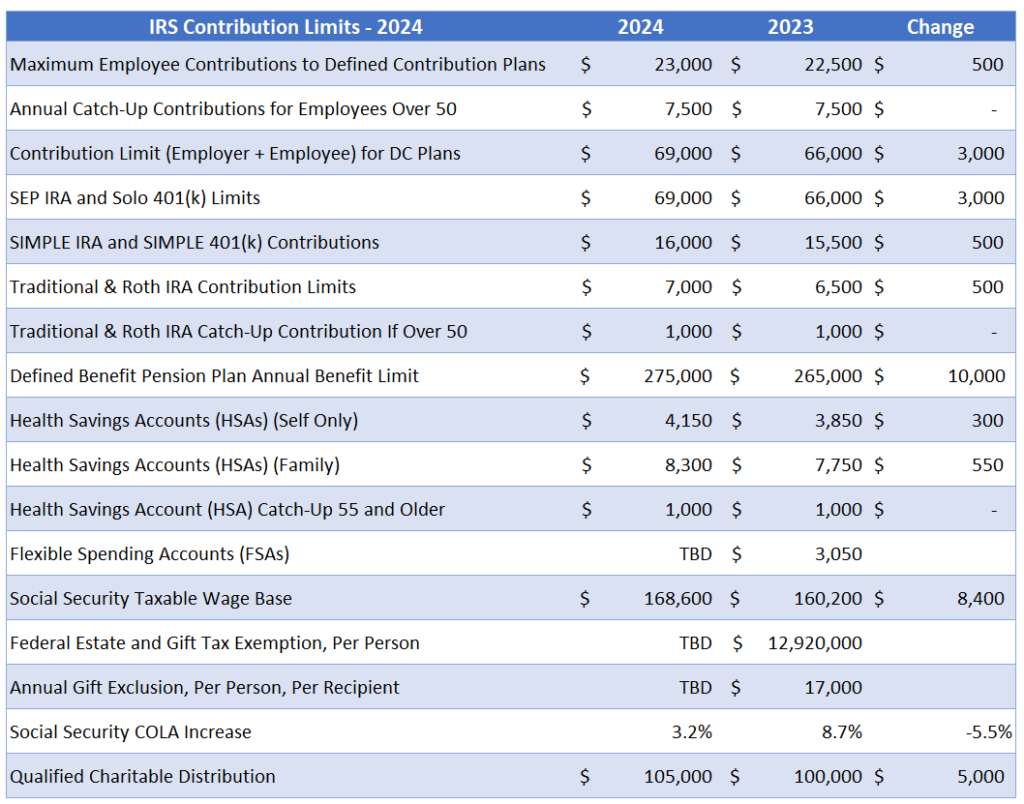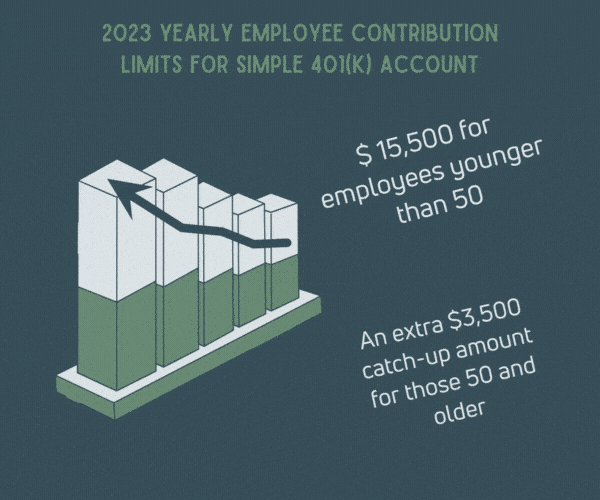Table of Contents
- IRS Announces New Income Limits for IRA Contributions in 2025 | Morningstar
- 401(k) Contribution Limits In 2024 And 2025 | Bankrate
- Retirement plans are changing in 2025: What to know - ABC News
- 2025 Retirement Plan Contribution Limits
- 401 K Limits For 2024 Irs - Janel Linette
- 2025 401k Contribution Limits 2025 Irs - Maya Savannah
- It's Official: 401(k) Contribution Limits for 2025 Are Here
- 401k Limit 2025 Catch Up - Elset Kalinda
- Six Changes to IRAs and 401(k)s in 2025 | Kiplinger
- IRS Raises 401(k) Contribution Limit for 2025


:quality(80)/cloudfront-us-east-1.images.arcpublishing.com/morningstar/AWN7VWC7GFBXLBUTPB33FQKXCQ.png)
Increased Contribution Limits for 401(k) and Other Plans




Income Limits for IRA Contributions and Deductions


Other Key Limitations and Thresholds
Other notable changes and limitations for 2025 include: The annual limit on additions to a SEP-IRA or a solo 401(k) plan has increased to $66,000, up from $64,500 in 2024. The annual limit on defined benefit plan annual benefits has risen to $265,000, a significant increase from the 2024 limit of $255,000. The highly compensated employee (HCE) threshold has increased to $145,000, affecting the administration of certain retirement plans.
Conclusion and Planning Considerations
The IRS's release of the 2025 qualified retirement plan limitations provides valuable information for individuals and employers to plan and optimize their retirement savings strategies. It is essential to review and understand these changes, as they may impact contribution amounts, income limits, and overall retirement planning. As the new year approaches, consider the following: Review your current retirement plan contributions and adjust them according to the new limits. Consult with a financial advisor or tax professional to determine the best retirement savings strategy for your individual circumstances. Take advantage of catch-up contributions if you are aged 50 or over. Consider the impact of income limits on IRA contributions and deductions when planning your retirement savings. By staying informed about these updates and adjusting your retirement planning accordingly, you can make the most of the new limits and thresholds, ultimately securing a more comfortable and financially stable retirement.For more information on the 2025 qualified retirement plan limitations, visit the IRS website or consult with a qualified financial professional.